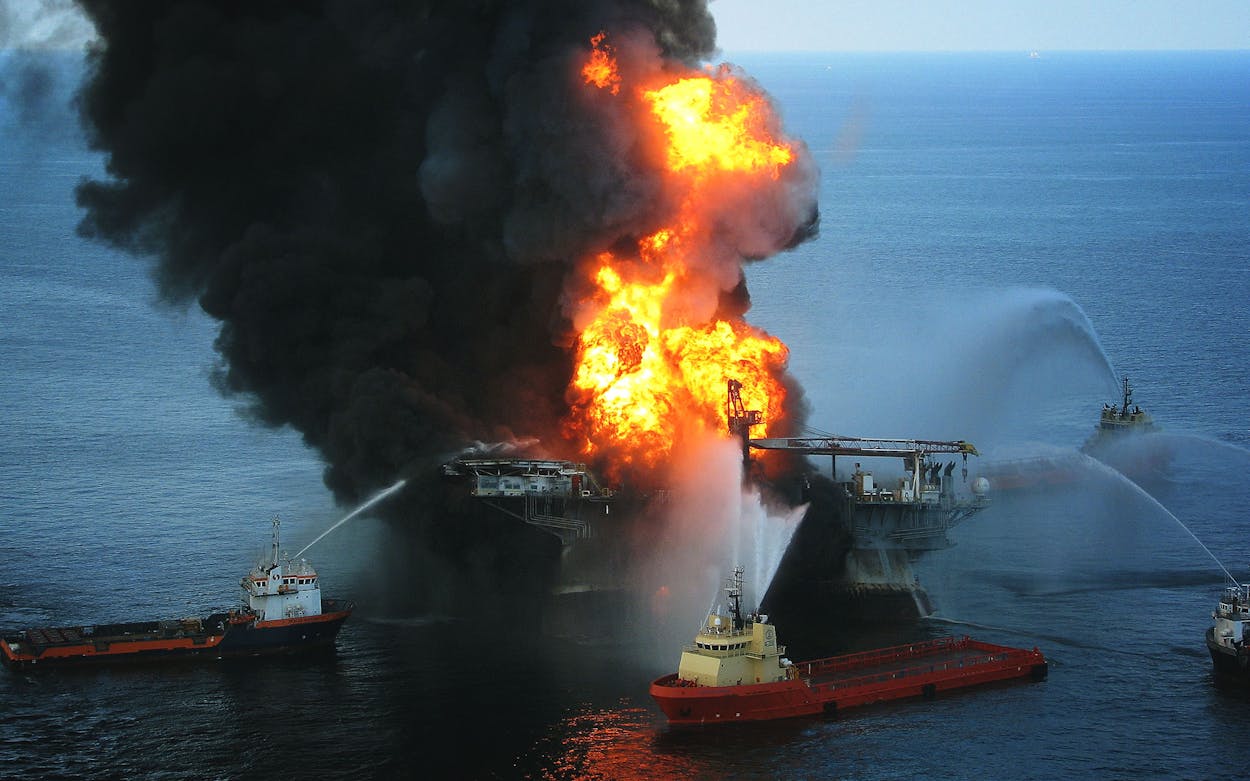Many offshore oil workers may not appreciate the significance December 10, but Bob Kaluza believes they should. That’s the date, in 2013, that a circuit court judge threw out eleven counts of seaman’s manslaughter against Kaluza and Don Vidrine.
He and Vidrine, who died in June, were the two BP supervisors aboard the Deepwater Horizon when it exploded on April 20, 2010, killing eleven rig workers. As the highest-ranking BP employees on site, the two “company men” were the only ones charged criminally in the deaths.
“That ruling shaped, forever, the personal liberties of hundreds, even thousands, of employees that work or will work in U.S.-regulated offshore waters,” Kaluza said.
The Justice Department indicted both men on eleven counts of manslaughter and eleven counts of seaman’s manslaughter, a obscure law enacted in 1838 to hold steamship captains accountable for reckless behavior after a series of fatal accidents on the Hudson River. (The law was passed almost three decades before the first U.S. oil well was drilled in 1859 and more than a century before the first offshore well.)
The Deepwater Horizon was, of course, a drilling rig, but technically, it also was a seagoing vessel, and as such, subject to some aspects of maritime law. The seaman’s manslaughter law, however, had never been applied to rig workers. Kaluza’s attorneys argued that company men were part of the drilling team, not a member of the ship’s crew. The judge agreed, ruling that workers involved in drilling operations are not maritime employees under the law.
The Justice Department appealed that decision, but the Fifth Circuit upheld the lower court’s dismissal of the charges in March 2015.
Michael Doyle, a Houston attorney specializing in maritime injury law, said prosecutors seemed to be looking for a shortcut — a way to tack on additional charges without having to prove gross negligence. The standard of proof for seaman’s manslaughter is simple negligence, which requires a lower threshold of evidence. “They chose the easy way and it blew up on them,” said Doyle, who wasn’t involved in the case.
If prosecutors had succeeded with claims, it could have added an additional threat of liability, at least for rig supervisors, Doyle said.
Eventually, after changes in the government’s legal team, waning public outrage over the accident, and several investigations that found multiple causes for it, the Justice Department dropped the remaining manslaughter charges. Vidrine accepted a plea agreement on a remaining misdemeanor water pollution charge, but Kaluza refused, insisting he had done nothing wrong. In February 2016, a jury in New Orleans acquitted him.
BP, meanwhile, had pleaded guilty to the seaman’s manslaughter charges early on, agreeing to pay $5.5 million to settle them.
The laws governing offshore workers remain murky. Many companies, for example, have “stop-work authority,” which means any worker can halt the drilling process if they believe the operations aren’t safe. But most workers say that, as a practical matter, the pressure to drill—operations for a deepwater well can cost $1 million a day—makes it almost impossible for a worker to invoke the authority. The stop-work rules create an excuse for upper management to blame the lowest employees in the chain of command if there’s an accident by arguing they didn’t stop the work.
Kaluza and Vidrine never tried to stop the drilling on the Macondo well. The criminal charges fell to them—though they were lowest BP employees in the chain of command.
No workers have been charged criminally in an offshore accident in the seven years since the Deepwater Horizon disaster. Kaluza maintains that the dismissal of the seaman’s manslaughter charges is one of the few good things that came out of his legal ordeal.
“The Justice Department would have, after future tragic incidents in the Gulf, charged other oil industry employees with the heinous maritime crime of seaman’s manslaughter to achieve the greatest political bang for their buck,” he said. “The legal ruling effectively removed a big piece of politics away from justice.”







